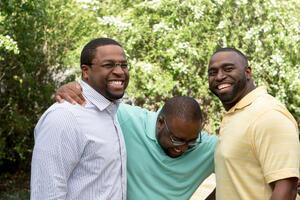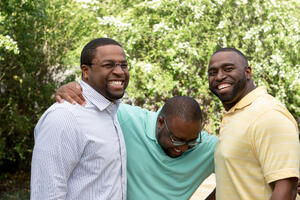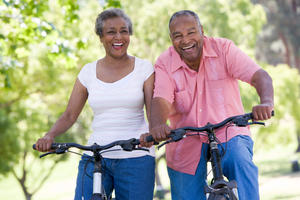
Our worlds are constantly changing, as we get older our family, social, and community structures change over time. Loved ones may get sick and require personal care, lifestyles and priorities change, and marriages/family relationships change. Seasons constantly change, work comes to an end, we retire, and other future plans become more important. Our lives evolve—and eventually, life comes full circle and has an end. It is important to note, as we grow older and wiser, social relationships and activities evolve with our changing lives and should be maintained.

Research indicates that emotional support, instrumental support (i.e., provisions of aid and services for medical and household maintenance), and informational support (i.e., advice and feedback to address problems as they arise) are needed in order for baby boomers and seniors to have better and more satisfying lives.
Here are some cognitive, social, and physical things to consider as we age:
Cognitive:
- We should mindful of who we surround ourselves with—life affirming people simply make us feel better.
- We may have to adjust our attitudes and surround ourselves with life affirming and healthy positive people who live, support, and embrace life changes.
- We have to learn to let go of negativity that is toxic such as: anger, being right, focusing on the negative, and refusing to forgive.

- As we get older, there is a paradigm shift in "how" we process messages, we tend to relate to messages that are emotionally meaningful and sentimental rather than messages that are for informational purposes and opportunities (Duncan, L. R., Latimer, A. E., Pomery, E., Rivers, S. E., & Salovey, P., 2013).
- Current research suggests that we become more "present" oriented as we age. Attitudes and messages may be interpreted differently-- as we tend to focus on emotionally meaningful goals.
Social:
Feeling valued and a sense of belonging is also important as we age. Emotional support has a strong consistent relationship with healthy aging.
- As we get older, we have to take a risk and cultivate new relationships with people who may be decades younger!
- Sometimes those who we share the same ethnic identity, cultures, and/or religious beliefs may not always be the most positive at this point in our lives. They may not be the best “fit” at present and make us feel bad about ourselves. We may have to reach out of our comfort zone and form relationships with others from completely different backgrounds.
- We have to make more effort to keep in touch with others in our neighborhoods and communities.
- Community networks and structure (where you live, accessibility to healthcare, streets with sidewalks, living in a “safe” neighborhood etc..) also impact our lives.
- Successful aging cannot be achieved by one healthy behavior alone.

Research suggests that having positive social relationship and interactions in community can lessen feelings of depression. If we continue to have these positive relationships over time, these relationships tend to decrease depressive symptoms. Alternately, as we get older, limited social, family, and community support tend to increase more feelings of sadness and loneliness.
Physical:
Healthy and successful aging is diverse and challenging to define. It is constantly being redefined based on many factors. We can promote well-being across the life span with exercise. Some healthy things to consider:
- Get some form of exercise a few times a week, it may be more adaptive (I.e., exercise in a chair or wheelchair)—but we have to keep moving.
- Exercise is important at any age.
- Exercise can be viewed by some as "self-care" while other may see it as "play" and "fun".
- Exercise reduces the risk of chronic health conditions, including diabetes, chronic pain, cancer, and cardivascular diseases (US Department of Health and Human Services, 2008; Bonura, K.B., 2016)
- Physical activity reduces stress hormones and increases feeing of relaxation.
- Physical activities promote healthy attitudes, stamina, endurance, and overall wellness.
- Health matters for happiness in old age. Older adults who rate their health as "good" are twice as satisfied with life as those who rate their health "poor" (David & Anderson, 2013).
- Fitness matters for health as we age. Cardiovascular fitness is related to improving functioning in older adults.
- Gentle, minimal exercise (i.e., walk after dinner or three 10-minute walks daily) requires minimal investment or effort and yields concrete health benefits.
- Physical activity social support groups may prove helpful as we age.

While no single behavior can lead to healthy and successful aging, through mindful, positive, prosocial, and proactive behaviors we can all work on redefining healthy and successful aging. Afterall, we are all getting older!
